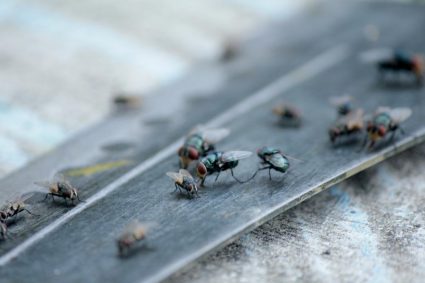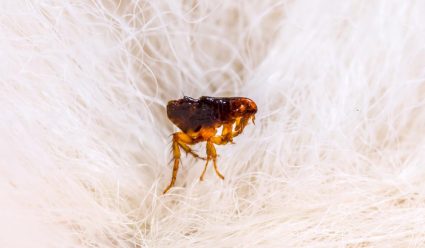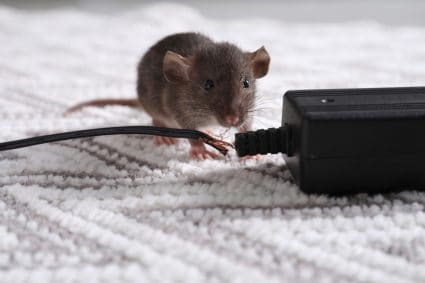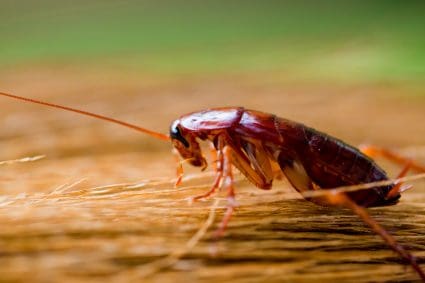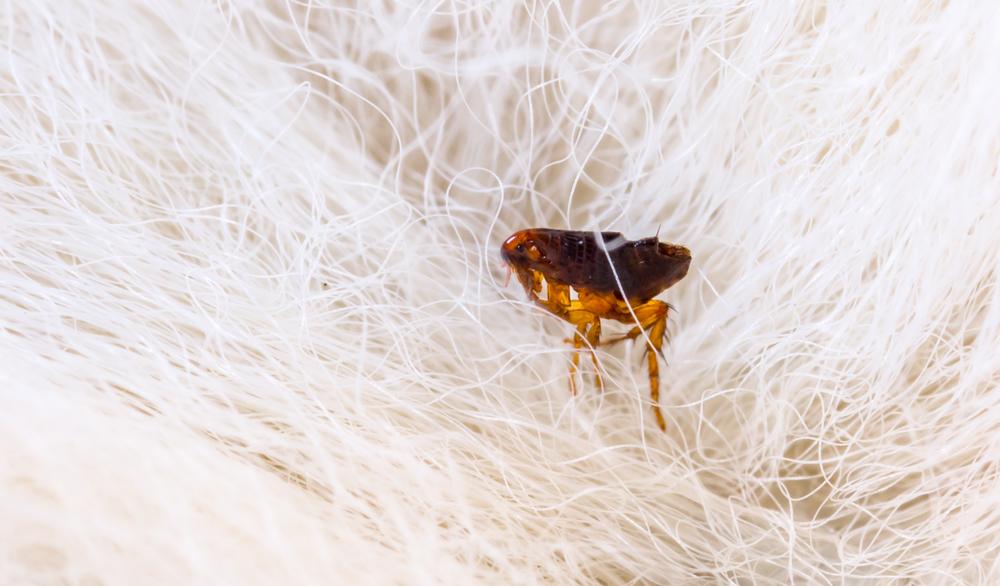
Rat fleas are more than just a nuisance – they’re a health hazard. These tiny parasites can carry diseases like bubonic plague and murine typhus, posing a risk to both pets and humans. If you’re dealing with a rat flea infestation, it’s crucial to take action immediately. This comprehensive guide will walk you through the process of identifying, eliminating, and preventing rat fleas.
To get rid of rat fleas, start by treating your pets with appropriate flea treatments. Vacuum your home thoroughly, wash all bedding and cushions, and use natural remedies like diatomaceous earth. Maintain a clean environment and control rodent populations in your home. For severe infestations, consider hiring professional extermination services. Prevent future infestations by maintaining cleanliness, eliminating rodent harborage points, and using flea repellents.
Identifying Rat Fleas
Rat fleas, belonging to the family Pulicidae, are small, usually less than ⅛ inch long. They’re known for their ability to jump distances up to 20 inches and heights of over a foot. The color of Oriental rat fleas, the primary vector for bubonic plague, varies from light brown to dark brown.
They go through four life-cycle stages: eggs, larvae, nymph, and adult. Both male and female adults feed on blood, preferring rats or other small mammals as hosts. However, they can also feed on domestic cats and dogs as well as wild mammals.
Risks and Diseases Associated with Rat Fleas
Rat fleas pose several health risks, including the transmission of diseases such as:
- Plague: This disease is transmitted to humans when a flea that has fed on an infected rodent bites a human.
- Flea-borne (murine) typhus: Infection can occur when flea feces are rubbed into the bite wound or other wounds, or when people breathe in or rub infected flea dirt into their eyes.
- Fleaborne parasites: Rat fleas can also spread tapeworms to humans and animals if they accidentally swallow an infected flea.
Eliminating Rat Fleas
To effectively get rid of rat fleas, you can use a combination of methods, including treating your pets, vacuuming your home, washing bedding and cushions, using natural remedies, maintaining a clean environment, controlling rodents, and considering professional extermination for severe infestations.
Preventing Future Infestations
Preventing future infestations involves maintaining a clean home and yard, eliminating rodent harborage points, caring for your pets, using flea repellents, using insecticides, controlling wild rodent infestations, preventing fleas in the yard, and keeping rodents and animals away from your home.
Products for Rat Flea Control
Several products on the market can be effective against rat fleas, including growth regulators like Methoprene (Precor) and pyriproxyfen (Nylor, Archer), Compare-N-Save Concentrate Indoor/Outdoor Insect Control, Kaput Products, Bonide Flea Fogger, flea medicated shampoos, Spectrum Hot Shot Flea Killer, botanical insecticides, Hartz Nature’s Shield Flea & Tick Home Spray, Kaput Mouse, Rat & Vole Combo Bait Pellets, and RatX Rodent Control Pellets.
Protecting Pets from Rat Fleas
To protect your pets from rat fleas, maintain a clean environment, use flea treatments, regularly check for fleas, limit contact with wild rodents, treat other pets in the household, keep your home and yard clean, and use flea repellents.
Signs of Successful Elimination
Signs that a rat flea infestation has been successfully eliminated include no more excessive scratching or irritation in pets, absence of flea feces, no more fleas on pets or in the environment, two consecutive weeks of inspection with no signs of flea activity, and no new bites or rashes on humans.
Professional Services
Professional pest control services are available for severe rat flea infestations. These services should be considered when DIY methods have been unsuccessful, the infestation is severe, or there are concerns about potential health risks.
Common Carriers of Rat Fleas
The most common carriers of rat fleas are rats, particularly the Rattus species. However, rat fleas can also feed on other small mammals, such as gerbils, as well as domestic cats and dogs.
By following this comprehensive guide, you can effectively rid your home of rat fleas and prevent future infestations, protecting both your family and your pets.
Frequently Asked Questions
How long does it take for rat fleas to complete their life cycle?
The life cycle of rat fleas, from egg to adult, typically takes between two and three weeks, depending on environmental conditions.
Can rat fleas survive without a host?
Yes, rat fleas can survive without a host for several weeks. They lie dormant and begin to search for a host when they sense heat, vibration, or carbon dioxide, indicating a potential host is nearby.
Can rat fleas infest humans?
While rat fleas prefer rats or other small mammals as hosts, they can and will bite humans if their preferred host is not available. However, they do not typically infest humans as they do not breed on human blood.
Are there specific signs of rat flea bites on humans?
Rat flea bites on humans often appear as small, itchy red bumps, usually around the ankles or lower legs. The bites often have a red halo around them and can become increasingly itchy over time.
How can I tell if my pet has rat fleas?
If your pet has rat fleas, you may notice excessive scratching or biting at their skin, hair loss, redness and inflammation of the skin, and flea dirt (small black or reddish-brown specks) in their fur.
Can rat fleas live in carpet?
Yes, rat fleas can live in carpets, rugs, upholstered furniture, and pet bedding. Regular vacuuming can help remove flea eggs and larvae from these areas.
How long does it take for flea treatments to work?
The effectiveness of flea treatments can vary, but most start to work within 24 to 48 hours. It’s important to continue treatment as directed by the product instructions or your veterinarian, as fleas can continue to emerge from their cocoons for several weeks after treatment.
Can I get rat fleas from my neighbors?
If your neighbors have a rat infestation, it is possible for rat fleas to migrate to your property, especially if you have pets that go outdoors. It’s important to maintain good flea control practices to prevent an infestation.


